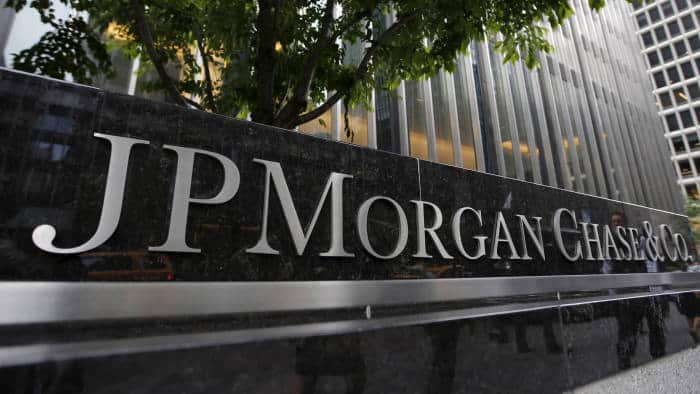JPMorgan Settles Fraud Charges for $920 Million with DOJ, CFTC, and SEC
In a historic legal resolution, JPMorgan Chase & Co. and its subsidiaries have admitted to fraud charges and agreed to pay $920.2 million to settle criminal and civil cases brought against it by the U.S. Department of Justice (DOJ), the Commodity Futures Trading Commission (CFTC), and the Securities and Exchange Commission (SEC). The charges stem from manipulative trading schemes that occurred over several years.
Criminal Charges: Two Distinct Fraud Schemes
The U.S. Department of Justice detailed that JPMorgan’s fraud charges are linked to two distinct schemes:
- Spoofing in Precious Metals Markets: Involving tens of thousands of unlawful trades in precious metals futures contracts.
- Manipulation of U.S. Treasury Markets: Involving thousands of unlawful trades in U.S. Treasury futures contracts.
According to the DOJ, these manipulative activities spanned several years, involving JPMorgan’s traders and sales personnel who knowingly engaged in illegal activities to distort market prices and defraud other market participants.
CFTC Actions: Largest Settlement in History
The CFTC independently charged JPMorgan Chase & Co. and its subsidiaries—JPMorgan Chase Bank and J.P. Morgan Securities—for spoofing and manipulative trading. These activities took place across major exchanges, including:
- Commodity Exchange, Inc. (COMEX)
- New York Mercantile Exchange (NYMEX)
- Chicago Board of Trade (CBOT)
What is Spoofing?
Spoofing involves placing fake orders to manipulate market prices. Traders place large, deceptive orders without the intention of executing them, misleading other market participants into acting on false market signals.
The CFTC order required JPMorgan to pay:
- $920.2 million in total monetary relief.
- This includes restitution, disgorgement (returning ill-gotten gains), and civil penalties—the largest settlement ever imposed by the CFTC in a spoofing case.
Key Takeaway:
This settlement sets a precedent as the largest financial penalty in CFTC history, underscoring the seriousness of market manipulation.
DOJ: JPMorgan’s Admission and Accountability
The DOJ emphasized that JPMorgan Chase’s misconduct spanned nearly a decade, with traders and personnel repeatedly violating U.S. laws designed to protect market integrity.
Assistant Director William F. Sweeney Jr. of the FBI’s New York Field Office stated:
“For nearly a decade, a significant number of JP Morgan traders and sales personnel openly disregarded U.S. laws that serve to protect against illegal activity in the marketplace.”
Breakdown of $920.2 Million Settlement
The settlement amount includes:
- Restitution: Compensation for victims of the manipulation.
- Disgorgement: Return of profits earned through illegal activities.
- Civil Penalty: Monetary fine imposed for violating U.S. regulations.
This record-breaking amount highlights the U.S. government’s zero-tolerance approach toward illegal trading practices in financial markets.
How the Fraud Affected Markets
JPMorgan’s activities disrupted:
- Precious Metals Futures: By manipulating prices, JPMorgan’s spoofing negatively impacted market stability and undermined investor confidence.
- U.S. Treasury Markets: Manipulative trades in U.S. Treasury futures contracts distorted an essential financial market that affects global economies.
The fraudulent activities harmed individual investors, institutional participants, and overall market fairness.
Regulatory Agencies Send a Strong Message
The DOJ, CFTC, and SEC’s actions send a clear signal: market manipulation will not go unpunished. The record-breaking penalties aim to deter other financial institutions from engaging in similar misconduct.
CFTC Chairman Heath P. Tarbert said:
“Today’s enforcement action demonstrates the CFTC’s commitment to holding financial institutions accountable when they engage in manipulative practices.”
JPMorgan’s Next Steps
As part of the settlement agreement, JPMorgan has:
- Admitted to the fraudulent activities and accepted responsibility.
- Agreed to enhance internal compliance programs to prevent future market abuses.
- Pledged to cooperate with regulatory agencies in related investigations.
The company’s acknowledgment and financial penalties mark a significant step toward accountability and rebuilding trust with market participants.
Conclusion: A Landmark Case in Financial Regulation
The $920.2 million settlement with JPMorgan Chase & Co. reflects the largest monetary relief ever imposed by the CFTC in a spoofing case. This outcome serves as a warning to all financial institutions about the consequences of engaging in fraudulent and manipulative trading practices.
The DOJ, CFTC, and SEC have demonstrated their commitment to protecting market integrity, ensuring that global financial markets remain fair, transparent, and accountable.
To learn more about the innovative startups shaping the future of the crypto industry, explore our article on latest news, where we delve into the most promising ventures and their potential to disrupt traditional industries.
Disclaimer: The information provided is not trading advice, Bitcoinworld.co.in holds no liability for any investments made based on the information provided on this page. We strongly recommend independent research and/or consultation with a qualified professional before making any investment decisions.




